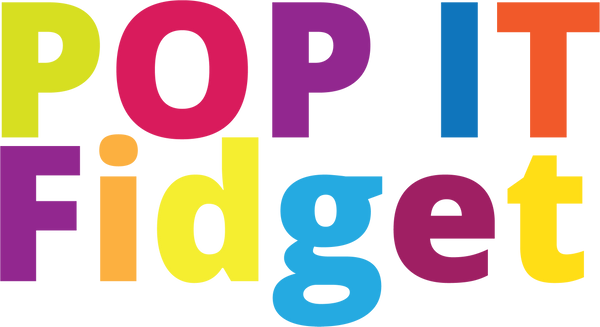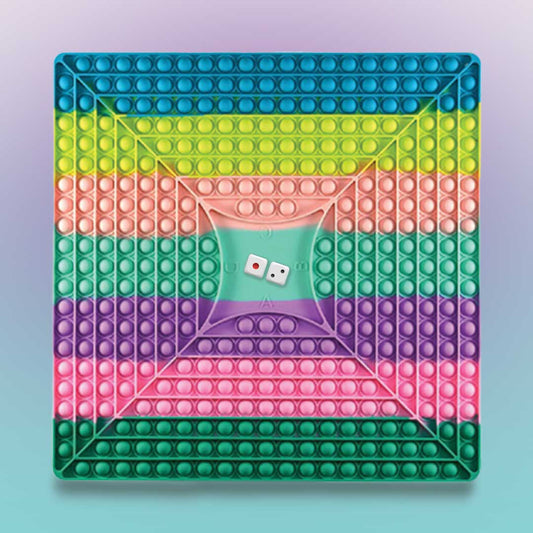Unlocking the Secrets: Best Gifts for Kids with ADHD
Attention Deficit Hyperactivity Disorder (ADHD) is a neurodevelopmental disorder that affects millions of children worldwide. It is characterized by symptoms such as inattention, hyperactivity, and impulsivity, which can make everyday tasks and activities challenging. Selecting the right gifts for children with ADHD can be particularly daunting, as these children often have unique needs and preferences. However, with thoughtful consideration and understanding, it is possible to find gifts that not only entertain but also support their development and well-being. This report delves into the best gifts for kids with ADHD, providing a comprehensive guide based on various sources and expert recommendations.
Understanding ADHD and Its Impact on Children
ADHD affects approximately 1 in 10 children, making it one of the most common neurodevelopmental disorders. Children with ADHD often struggle with maintaining attention, controlling impulses, and regulating their energy levels. These challenges can impact their academic performance, social interactions, and overall quality of life. Therefore, selecting gifts that cater to their specific needs can play a crucial role in their development and happiness.
Key Considerations for Choosing Gifts
When selecting gifts for children with ADHD, it is essential to consider the following factors:
- Engagement and Interest: Choose gifts that align with the child's interests and hobbies. This ensures that the child remains engaged and motivated to use the gift.
- Sensory Stimulation: Many children with ADHD benefit from sensory toys that provide tactile, visual, or auditory stimulation. These toys can help calm their minds and improve focus.
- Physical Activity: Gifts that encourage physical activity can help channel excess energy and improve coordination and body awareness.
- Educational Value: Educational toys and games can support cognitive development and enhance skills such as problem-solving, memory, and attention.
- Durability and Safety: Given that children with ADHD may play more vigorously, it is important to choose durable and safe toys that can withstand rough handling.
Age-Appropriate Gift Ideas
Toddlers (Ages 1-3)
For toddlers with ADHD, sensory toys are often the most effective. These toys engage multiple senses and encourage exploration, which can be both calming and stimulating.
- Textured Balls and Stacking Cups: These toys provide tactile stimulation and help develop fine motor skills.
- Simple Musical Instruments: Instruments like tambourines and maracas can engage auditory senses and promote rhythmic movement.
- Water Tables and Sand Play Sets: These provide hours of engaging sensory play while promoting fine motor skills development (Neurolaunch).
Preschoolers (Ages 4-6)
Preschoolers with ADHD can benefit from toys that combine sensory stimulation with educational value.
- Kinetic Sand and Playdough: These provide a calming sensory experience while encouraging creativity.
- Building Sets with Larger Pieces: Toys like Mega Bloks or Duplo help develop fine motor skills and spatial awareness.
- Ride-On Vehicles and Mini Trampolines: These active toys help burn off excess energy and improve coordination (Neurolaunch).
Elementary School Children (Ages 7-12)
For older children, more complex toys that challenge their cognitive and physical abilities are ideal.
- LEGO Kits: These promote problem-solving, spatial awareness, math skills, creativity, hand-eye coordination, and fine motor development (Family Education).
- Science Kits: Hands-on experiments can captivate their interest while teaching important concepts.
- Strategy Board Games: Games like Chess or Blokus can improve planning and impulse control.
- Sports Equipment: Individual sports like tennis or martial arts can help improve focus and self-discipline (Neurolaunch).
Teenagers (Ages 13+)
Teenagers with ADHD often have more specific interests, and gifts that cater to these can be particularly rewarding.
- Personal Laptop or Tablet: These can be used for educational purposes and social interactions, provided that safe internet practices are followed (Family Education).
- Weighted Blankets or Vests: These can help calm a child with ADHD, increasing their focus and executive function.
- Art Supplies: For teens who enjoy creative activities, art supplies like paints, sketchbooks, and digital drawing tablets can be excellent gifts (Family Education).
Sensory Toys and Fidget Tools
Sensory toys and fidget tools are particularly beneficial for children with ADHD as they provide a physical outlet for restlessness and help improve focus.
- Fidget Spinners and Fidget Cubes: These small, handheld devices can help children concentrate better during sedentary activities (Homeschool of 1).
- Sensory Putty: Products like Crazy Aaron's Thinking Putty provide a hands-on, stress-relieving experience.
- Chewy Fidgets: For children who have high chew needs, chew necklaces can prevent them from chewing on inappropriate items (ADHD Supergirls).
Educational Apps and Tools
In the digital age, educational apps and tools can be invaluable for children with ADHD. These apps help improve executive function, critical thinking, and working memory.
- EndeavorRX: The only FDA-approved video game for children with ADHD, designed to help with focus and attention (Family Education).
- Khan Academy: This app offers courses for pre-K through college in various subjects, allowing children to learn at their own pace (Family Education).
- Headspace: This app offers meditation and mindfulness exercises tailored for children, helping them regulate their emotions and improve focus (Family Education).
Practical and Fun Gifts
Sometimes, the best gifts are those that combine practicality with fun. These gifts can support daily routines and provide enjoyable experiences.
- Noise-Cancelling Headphones: These can help children with ADHD focus in noisy environments and reduce sensory overload (ADHD Supergirls).
- Sound Machines: These can help combat insomnia, a common issue for children with ADHD.
- Experience Gifts: Activities like zoo visits, museum trips, or sports events can provide memorable experiences and opportunities for learning and social interaction (Family Education).
Conclusion
Selecting the right gifts for children with ADHD requires thoughtful consideration of their unique needs and preferences. By choosing gifts that engage their interests, provide sensory stimulation, encourage physical activity, and offer educational value, parents and caregivers can support the development and well-being of children with ADHD. It is important to remember that what works for one child may not work for another, so flexibility and willingness to try various approaches are key. Ultimately, the best gifts are those that bring joy, foster growth, and help children with ADHD thrive.





